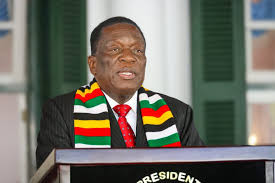
When President Emmerson Mnangagwa handed over the Southern African Development Community (Sadc) chairmanship to Madagascar’s Andry Rajoelina last week, the ceremony carried a message far beyond regional diplomacy. It must stand as a precursor to how power ought to be transferred in Zimbabwe in 2028.
The change must be peaceful, constitutional and without manipulation.
Zimbabweans are yearning for that moment. After decades of bruising political contests, contested elections, and endless quarrels over succession, citizens long for a dignified handover when the President’s term ends.
They want the leadership demonstrated in Madagascar to serve as a symbolic preview of the good times to come.
For now, however, many are baffled.
Why do some of his sympathisers insist he should cling onto Zimbabwe’s presidency until 2030? Their campaign to stretch his stay only revives the destructive succession battles that have haunted Zanu PF for decades, poisoning the party and destabilising the country.
This fixation on power did not start now. It was perfected under Robert Mugabe, who ruled for 37 years, ruthlessly purging colleagues with ambition and persecuting opposition leaders who threatened his grip.
Mugabe’s determination to die in office defined Zimbabwe’s politics for generations, leaving behind a toxic culture where leaders place personal survival above national interest.
- Mr President, you missed the opportunity to be the veritable voice of conscience
- ED to commission new-look border post
- Zanu PF ready for congress
- EU slams Zim over delayed reforms
Keep Reading
That hunger to overstay has long been the curse of African politics, leaving nations scarred by coups, constitutional violations, violent transitions, and in many cases, economic collapse.
Mnangagwa, who has repeatedly stated that his term ends in 2028, assumed the Sadc chair in August 2024, a year after the bloc discredited Zimbabwe’s 2023 elections. Despite that criticism, regional leaders honoured Zimbabwe’s turn to lead. This underlines the absurdity of his allies now plotting to shred the constitution for the sake of extending his rule.
To his credit, Mnangagwa has consistently declared himself a constitutionalist, stressing that he will not exceed the two-term limit. If he holds to that pledge, he would break from Mugabe’s toxic legacy and secure respect as a leader who resisted the perennial African temptation to overstay.
If he bows to loyalists, however, his legacy will be ruined, his statesmanship questioned, and his promises exposed as empty rhetoric.
Zimbabwe’s battered economy, fragile institutions, and weary citizens cannot endure another bruising political war centred on one man’s tenure.
A dignified, orderly transition in 2028 would strengthen the constitution, restore stability, and win Mnangagwa honour at home and across the region.
Ultimately, Mnangagwa’s place in history will not be decided by Sadc chairmanships or political manoeuvres.
It will be determined by whether he honours the constitution and steps down in 2028. Zimbabweans will respect him for keeping his wor











